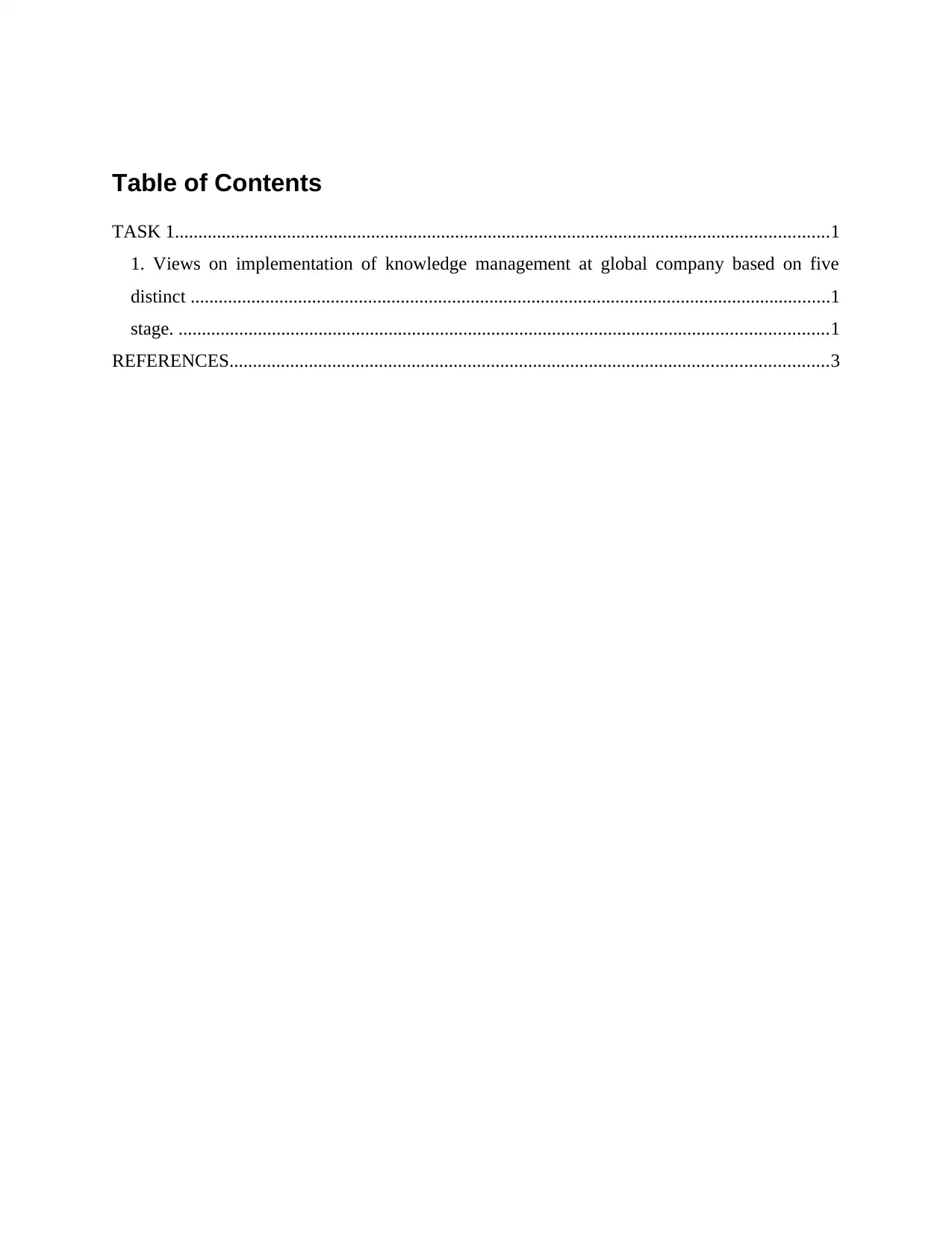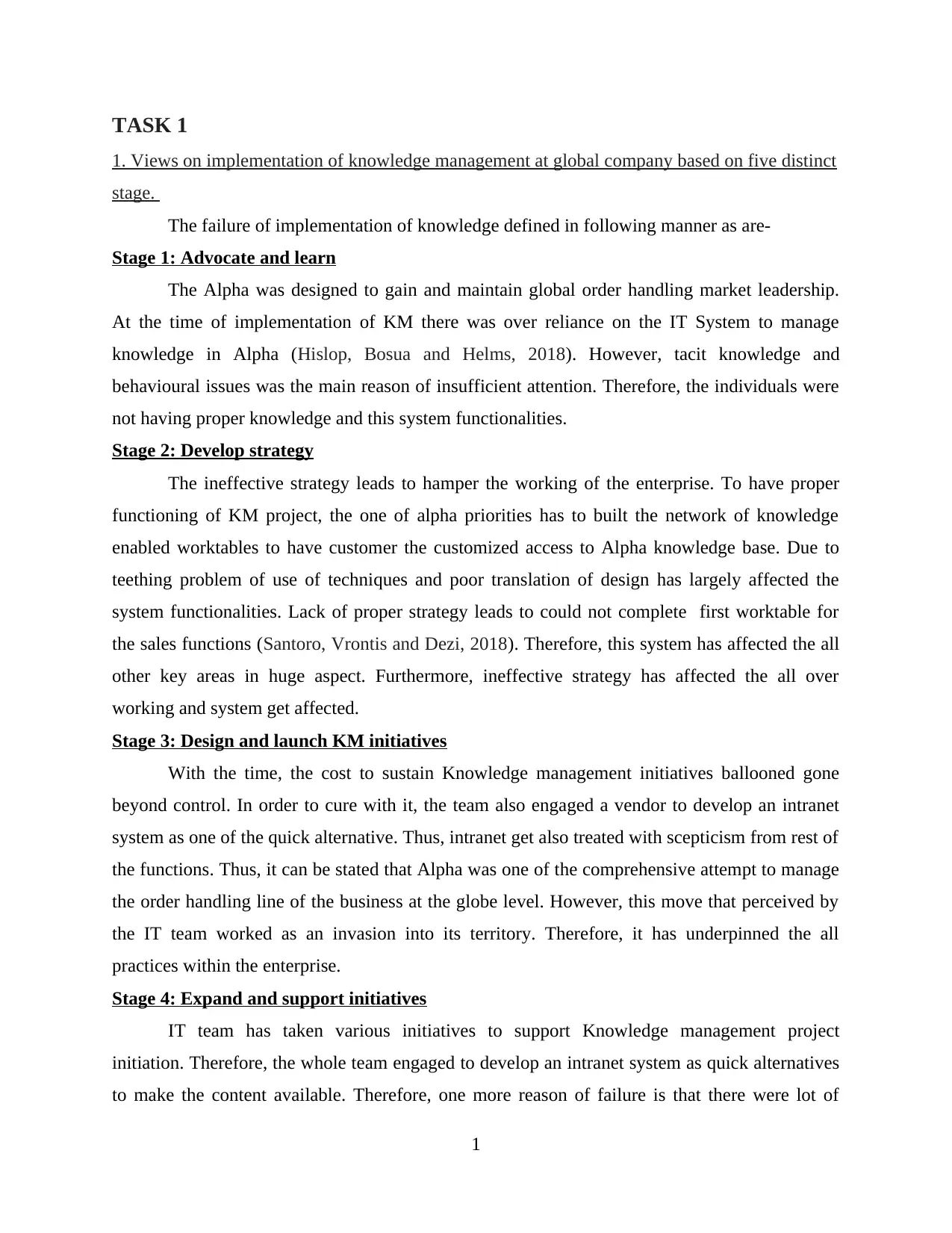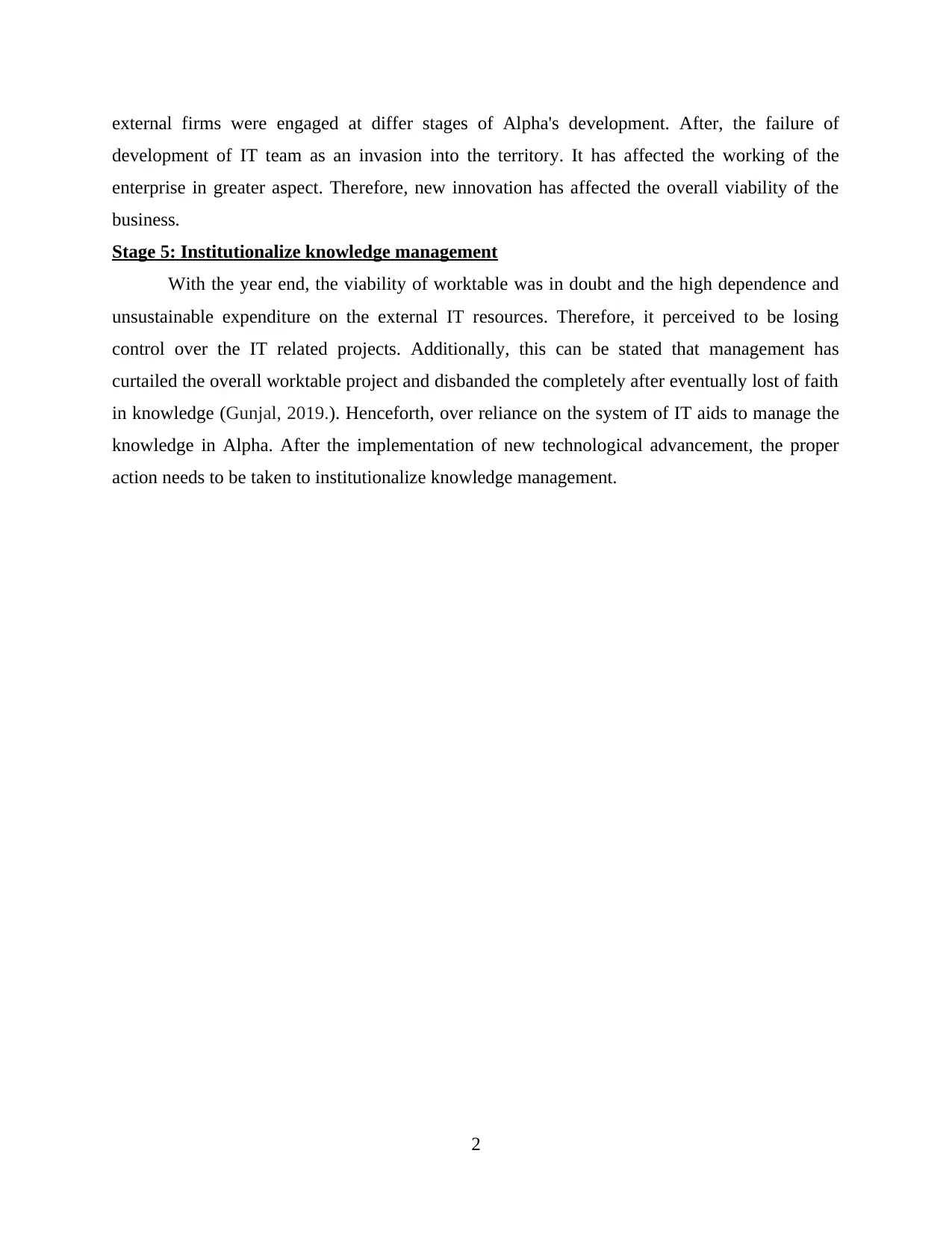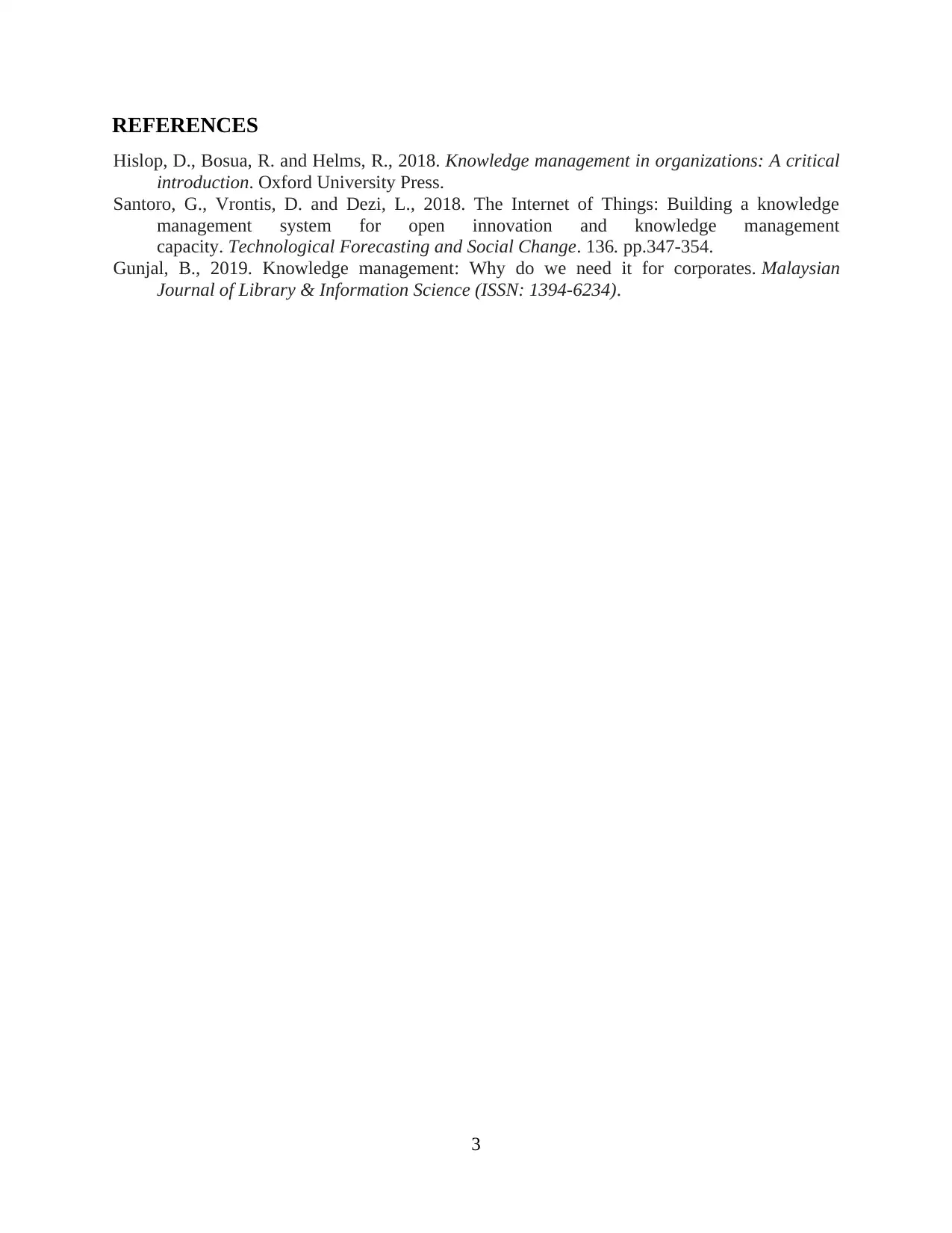Detailed Analysis of Knowledge Management Implementation at Alpha
VerifiedAdded on 2021/02/19
|5
|708
|53
Report
AI Summary
This report provides an analysis of the implementation of knowledge management (KM) at a global company, referred to as Alpha. The report examines the failures of KM implementation across five distinct stages: Advocate and Learn, Develop Strategy, Design and Launch KM Initiatives, Expand and Support Initiatives, and Institutionalize Knowledge Management. It highlights key issues such as over-reliance on IT systems, the importance of tacit knowledge, ineffective strategies, ballooning costs, and the impact of external vendors. The analysis delves into how poor translation of design, lack of proper strategies, and the perception of IT initiatives as invasions of territory contributed to the project's ultimate failure. The report concludes by emphasizing the need for proper action after the implementation of technological advancements to institutionalize knowledge management effectively. Key references include works by Hislop, Bosua, and Helms (2018), Santoro, Vrontis, and Dezi (2018), and Gunjal (2019).
1 out of 5












![[object Object]](/_next/static/media/star-bottom.7253800d.svg)